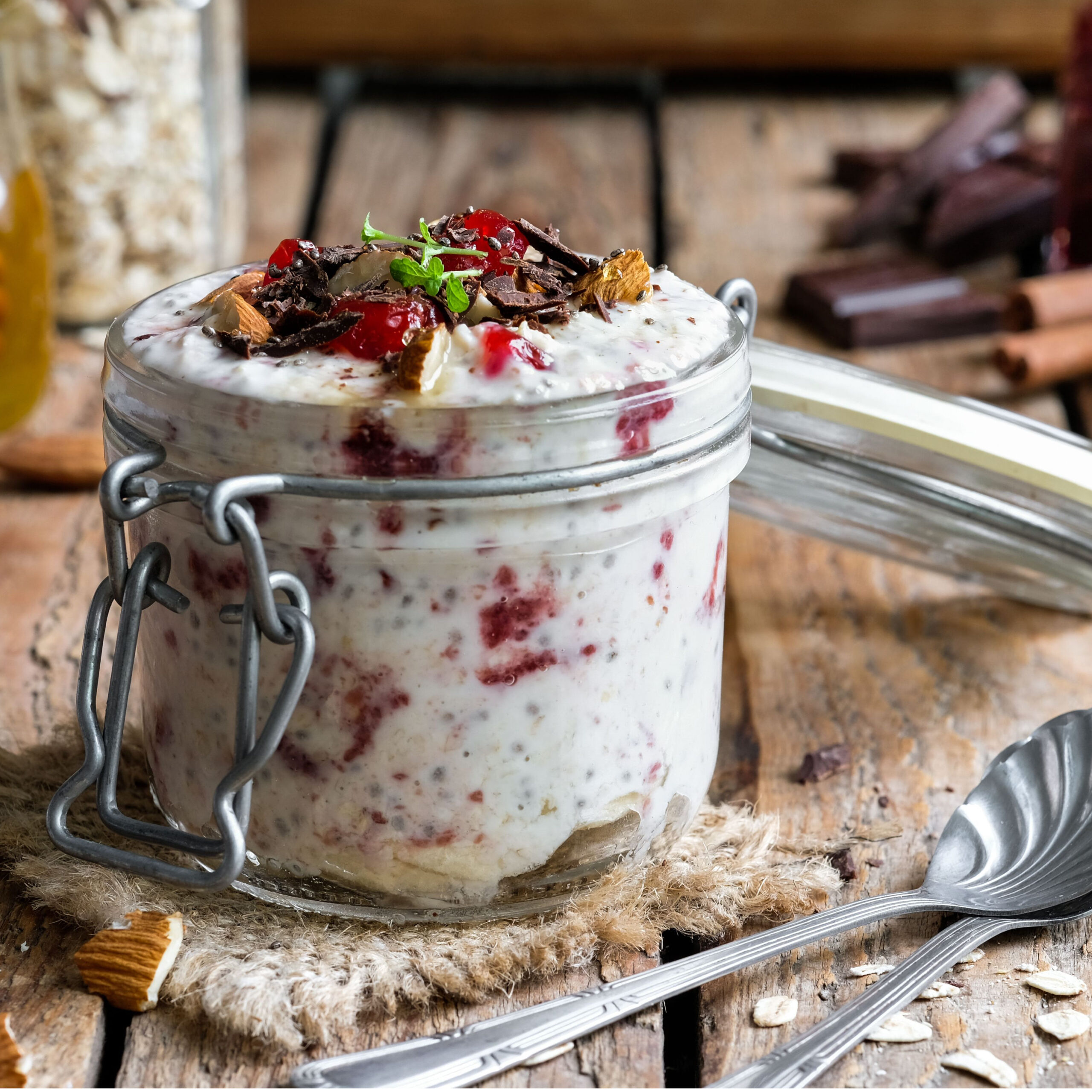SheFinds editors independently select which products to write about, but in some cases may receive commission, free product or social media promotion in support of this coverage.
When you think of staying healthy, you may think mostly about what that means for your body. However, in order to live a long, healthy, and happy life, it’s vital to consider your brain health, as well. Making your cognitive health a priority will allow you to improve your memory, focus, creativity, mood, sleep, and more–not to mention lower your risk of cognitive diseases like Alzheimer’s and dementia. But what exactly does keeping your brain healthy entail, and what brain-healthy changes can you make in your own life in order to experience these benefits? We’re to answer those questions with the help of experts.
We were lucky enough to speak with chef Alton Brown, who has partnered with Neuriva Brain Health Supplements, along with nutritionists Lisa Richards, creator of The Candida Diet, and Mary Sabat. They gave us the low-down on the best habits to improve your brain health. As it turns out, improving cognitive function, mood, and sleep can be as simple as working brain-friendly foods into your diet, taking daily supplements, and solidifying a great sleep schedule. Learn more about the benefits of all of these habits below!
READ MORE:
2 Fruits You Can Eat Daily For A Healthier Body And Brain Over 40
These Breakfast Foods Lead To Sluggishness And Brain Fog Throughout The Day, Nutritionists Warn
Having This Sweet Treat Every Day Could Improve Memory And Mood, According to Doctors


1. Prioritize brain-healthy foods
Your diet plays a crucial role in practically every area of your health–and your brain health is no different. To keep your brain as sharp as possible for as long as possible, it’s important to provide your body with ample nutrients. Of course, as a chef, Alton Brown has always made a nutritious diet a priority. However, ensuring brain-healthy foods get added to the mix every day has become a specific goal of his in recent years. “Although I was already trying to keep my nutrition level, once I figured out what my brain really needed from food, I changed that too,” he tells us. “I try to get a bunch of my nutrition in the morning. I know that the sooner in the day I get the stuff I need, the less I’m likely to wander off and eat a bag of Cheetos. I’m a lot less likely to be hungry. A lot of these foods are loaded with both insoluble and soluble fiber, so I know that I’m going to feel full longer, and I’m also going to have good energy.”
Alton sat down with us for a brain-healthy breakfast made up of his recipes. It included delicious overnight oats, a flavor-packed chickpea trout frittata, and a simple but tasty parsley salad. Each of these foods is loaded with nutrients that your brain loves.
Richards tells us that some of the most important nutrients to eat every morning include the following:
-Omega-3 fatty acids like the kind found in Alton’s tasty trout frittata - These include "fatty fish, such as salmon, mackerel, and sardines, are rich in omega-3 fatty acids, particularly EPA and DHA,” Richards says. “These fatty acids are important for brain health and have been shown to improve cognitive function, reduce inflammation, and lower the risk of neurodegenerative diseases.”
-B vitamins, which oats pack in - “Oats contain several B vitamins, including thiamin, riboflavin, and niacin, which are important for brain function. These vitamins are involved in energy metabolism and can support cognitive function,” according to Richards.
-Antioxidants, which you can get from the fiber-rich berries featured in Alton’s overnight oats - “Berries contain high levels of antioxidants, which protect the brain from oxidative stress and inflammation. These compounds may help prevent age-related cognitive decline and reduce the risk of neurodegenerative diseases like Alzheimer's and Parkinson's,” Richards points out.
Protein, iron, zinc, and vitamin D are also vital–and all found throughout Alton’s brain-friendly breakfast.
While breakfast is certainly the most important meal of the day, especially when it comes to staying energized and keeping your brain sharp, there are plenty of ways to sprinkle these nutrients across all of your meals. For a quick, energizing snack, Alton says nuts are his go-to. They’re tasty, filling, and packed with omega-3 fatty acids. And as for dinner? He recommends keeping it light so that you can sleep well–because all that beauty sleep is also crucial for your brain.

2. Take your supplements
Sometimes, your diet just isn’t going to cut it. That’s where supplements come in. These can be especially helpful when it comes to any brain-healthy nutrients you typically run low on, like B vitamins.
“B vitamins are essential for brain health and overall health, and taking B vitamin supplements can be helpful for individuals who may not be getting enough of these nutrients through their diet,” Richards says, noting that vitamin B6, vitamin B12, and folate “are important for cognitive function and have been shown to improve memory, attention, and processing speed.” As she tells us, “They play an important role in energy production and can help combat fatigue and improve mood.” In fact, they’ve even been shown to lower the risk of neurodegenerative diseases like Alzheimer's and Parkinson's.
Alton says he’s found that he finds it difficult to fit enough B6, B12, and B9 into his meals–which is why he started taking Neuriva Plus every morning. “I’ve made that just part of my routine every morning,” he says. “I wake up and take Neuriva Plus before I do anything else. Before I have coffee, my first water of the day goes with [the supplement].”
This handy capsule packs in B6, B12, and folate, which Alton notes is “responsible for the formation of things like dopamine and serotonin.”
Additionally, Neuriva Plus offers up 100mg of phosphatidylserine, which “helps to maintain the insulation in our brain cell members” in order to “keep everything moving at the right rate.”
Then there’s the coffee cherry extract, a unique ingredient that research shows may boost alertness and mood. All in all, starting your day with a supplement like this one can do wonders for your brain over time.

3. Perfect your sleep schedule and routine
One of the factors Alton has seen a major change in as he’s made his brain health a priority is his mood, which he says has “improved radically.” That includes lower stress levels–and this benefit is largely a result of better sleep. “I think that the changes I’ve taken on because of better sleep have led me to have a lot less stress during the day,” he says.
So, what are some changes you can make in your own life to reap the benefits of a better night’s sleep? For one, setting yourself a consistent sleep schedule and wind-down routine is key.
“I wake up at the same time every day,” Alton tells us. According to him, this is thanks to a consistent nighttime routine, which includes winding down and going to sleep at the same time each night. “I actually have an alarm on my phone trying to go to sleep at the exact same time every night,” he goes on. “And I set an alarm that allows me a one-hour wind-down, so I have a power-down procedure.” That “power-down procedure” involves putting away electronic devices, drinking some water, and taking Neuriva’s Relax and Sleep supplement, which Alton says has done a lot for him: “I think it’s taken a lot of stress off of me.”
A supplement like Relax and Sleep, which contains relaxing Ashwagandha and L-theanine, can help you achieve the most restful sleep possible. “Ashwagandha and L-theanine are both herbs that are commonly used to help promote better sleep,” explains Sabat. “They work by decreasing stress and anxiety, regulating hormones, and calming the nervous system, which can all help improve sleep quality.”
Many people, including Alton, find that natural remedies like these lead to a better, more restorative sleep than options like sleeping pills or melatonin. “Ashwagandha and L-theanine can have a more natural effect on the body, as opposed to melatonin, which is a synthetic hormone,” Sabat says.
Regardless of whether or not you take a supplement to help you wind down, what really matters is finding a way to relax so that you can fall asleep, stay asleep, and wake up well-rested. Your brain will thank you!
The bottom line
As Alton tells us, improving your brain health is a comprehensive effort; you should be making healthy decisions every day and incorporating brain-friendly habits into your daily routine. When you adjust your diet, make sleep a priority, and throw the right supplements into the mix, you’ll be several steps closer to a sharper mind, elevated mood, and an overall higher-functioning brain. Alton says that the changes he’s made in his own routine have led to better productivity, higher-quality work, radically-improved moods, and even radically-improved relationships. Sign us up!


























